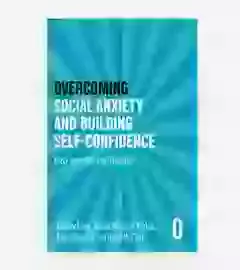What causes Social Anxiety?
Causes are always complex, and what may seem to be the immediate cause of a social anxiety problem will actually be just one of many contributory factors. We can identify five main types of factor that contribute to social anxiety.
Biological factors
These are the differences in our natural characteristics - the way we are born. Firstly, people differ in their speed of 'reactivity', and a greater reactivity speed means you notice physiological changes, such as increased heart rate, sooner. This is a kind of sensitivity and may be seen as a tendency to over-react to situations. We know that anxiety can run in families, and this suggests that there is also a gene play a role. Secondly, people have very different temperaments or personalities, which affect the degree to which they are easily distressed.
Environmental factors
The first relationships we make are at home. In our families, we learn important social lessons: about what behaviour is acceptable or unacceptable; about what it means to feel loved and to feel unloved; about being accepted or rejected. These experiences provide the background to our beliefs and assumptions about what other people think of us. Being liked, loved and accepted gives us a sense of our own value, and helps to build our self-esteem and feelings of confidence in relation to other people.
If the overall message you receive at an early age is not positive or helpful, then you may become uncertain about your ability to relate to others. If you never know whether you'll be praised or criticized, it's harder to become socially confident. Socially anxious people, as we have seen, tend to assume that other people judge them. The ways in which you are evaluated as you grow up tell you about what is acceptable in your social world. If judgments were too harsh, you'll feel rejected or inadequate, and fear that your actions will reveal underlying weaknesses. This creates beliefs and assumptions that are deeply ingrained in you, but the good news is that they can also be changed.
Bad or traumatic experiences
Traumatic experiences cause extreme distress at the time that they occur, and they also leave their mark. Some of the most common ones reported by socially anxious people are experiences that happened at school. Being bullied is an obvious example. Anything that singles you out as different, unacceptable or odd in the judgment of others can make you vulnerable to social anxiety.
The demands of different life stages
Most people with social anxiety say either that they've always had it, or that it became a problem in their teens and early twenties. Adolescents and young adults have to find their way around a lot of potential stumbling blocks socially as they become independent and establish themselves in the adult roles that society expects. Negotiating these changes is no easy task, and patterns developed earlier in life may make some later problems harder to deal with.
Present-day stresses
Two kinds of stresses are especially likely to contribute to feeling anxious: major moves that sever important social contacts with friends, family or colleagues and important changes that affect ways of relating to other people, such as a change in job role. These events demand adaptation, and that takes energy at a time when there may be little to spare, and when confidence has yet to be built up. Old vulnerabilities may re-emerge at this time.
How the different factors interact
When a problem has many potential causes it's hard to disentangle them, but we can divide the likely causes of a social anxiety problem into two categories: vulnerability factors and stresses. Vulnerability factors are long-standing characteristics that make you susceptible, and they are both biological and psychological. The psychological factors are basically the messages that you've received from the things that happened to you earlier in life. Stresses include the demands of your particular life stage and the circumstances that are affecting you now.

















